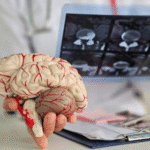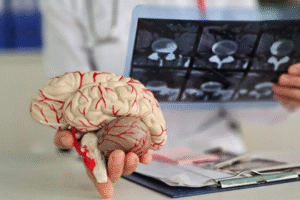1. Introduction to Hypertrophic Cardiomyopathy (HCM)
Hypertrophic cardiomyopathy is a genetic heart condition characterized by abnormal thickening of the heart muscle, leading to various cardiac issues.
2. Role of ECG in HCM Diagnosis
Electrocardiogram (ECG) plays a crucial role in diagnosing HCM by detecting characteristic electrical abnormalities associated with the condition.
3. Basics of ECG Interpretation
Understanding the basics of ECG interpretation is essential for recognizing the subtle changes indicative of HCM.
4. Normal ECG Findings
A normal ECG may show sinus rhythm and normal QRS complexes, but individuals with HCM often exhibit specific ECG abnormalities.
5. Left Ventricular Hypertrophy (LVH)
LVH is a common finding in HCM and may manifest as increased voltage amplitude in the QRS complexes on ECG.
6. Voltage Criteria for LVH
Voltage criteria, such as the Sokolow-Lyon criteria or Cornell criteria, help assess LVH on ECG and may be indicative of HCM.
7. Repolarization Abnormalities
Repolarization abnormalities, such as ST-segment and T-wave changes, are frequently observed in HCM and can be detected on ECG.
8. Left Atrial Enlargement (LAE)
LAE, often seen in HCM patients, may be inferred from ECG findings such as widened P-wave duration or increased amplitude.
9. Pseudoinfarction Patterns
Pseudoinfarction patterns, including Q waves in lateral leads, may be present in HCM patients and can mimic myocardial infarction on ECG.
10. Ventricular Arrhythmias
Ventricular arrhythmias, though less common, can occur in HCM and may manifest as abnormal QRS complexes or T-wave changes on ECG.
11. Atrial Fibrillation (AF)
AF is a common arrhythmia in HCM patients and can be detected on ECG by irregular R-R intervals and absence of distinct P waves.
12. Role of Exercise Stress Testing
Exercise stress testing, often coupled with ECG monitoring, can unmask latent arrhythmias or ischemia in HCM patients, aiding in diagnosis and risk stratification.
13. Differential Diagnosis
Distinguishing ECG findings of HCM from other cardiac conditions, such as physiological LVH or coronary artery disease, requires careful analysis and clinical correlation.
14. Echocardiography Confirmation
While ECG findings can suggest HCM, confirmation with echocardiography is essential for definitive diagnosis and assessment of disease severity.
15. Genetic Testing Considerations
Given the genetic basis of HCM, genetic testing may complement ECG and imaging studies in confirming diagnosis and assessing familial risk.
16. Risk Stratification
Identifying high-risk features on ECG, such as ventricular arrhythmias or extensive repolarization abnormalities, aids in risk stratification and guiding therapeutic decisions.
17. Implantable Cardioverter-Defibrillator (ICD) Considerations
Patients with HCM and high-risk ECG features may benefit from ICD implantation for primary prevention of sudden cardiac death.
18. Pharmacological Management
Pharmacological management of HCM, including beta-blockers and calcium channel blockers, may help alleviate symptoms and reduce arrhythmia risk, but ECG monitoring is essential for assessing treatment response.
19. Role of Cardiac MRI
Cardiac MRI provides detailed imaging of myocardial structure and function, complementing ECG findings in the evaluation of HCM.
20. Lifestyle Considerations
Patients with HCM should be counseled on lifestyle modifications, including avoiding strenuous exercise, to minimize the risk of adverse events detected on ECG.
21. Multidisciplinary Care Approach
Managing HCM requires a multidisciplinary care approach involving cardiologists, genetic counselors, and other specialists to optimize patient outcomes.
22. Long-Term Monitoring
Regular follow-up with ECG and imaging studies is essential for monitoring disease progression, assessing treatment efficacy, and adjusting management strategies in HCM patients.
23. Patient Education and Support
Educating patients and their families about the implications of ECG findings in HCM fosters active participation in disease management and promotes adherence to treatment plans.
24. Advancements in HCM Research
Ongoing research in HCM aims to elucidate the underlying genetic mechanisms, identify novel therapeutic targets, and improve risk stratification methods based on ECG findings.
25. Conclusion: ECG analysis plays a pivotal role in the diagnosis, risk stratification, and management of hypertrophic cardiomyopathy, providing valuable insights into the electrical abnormalities associated with the condition and guiding therapeutic decision-making for optimal patient care.














